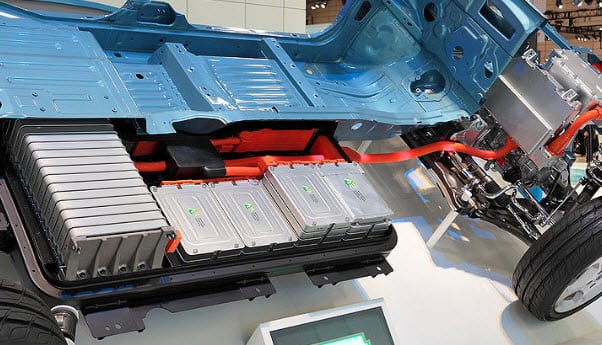
Britain’s hydrogen fuel infrastructure gets a boost
September 24, 2012University of Nottingham takes aim at hydrogen fuel infrastructure
The world may be waiting for bated breath for the arrival of hydrogen powered vehicles, but that does not mean that efforts to build an infrastructure must wait until these vehicles become readily available. The University of Nottingham in the United Kingdom is taking the issue of hydrogen fuel infrastructure seriously and has begun building its own hydrogen fuel station. University officials aim to help the country establish a strong hydrogen fuel infrastructure before the coming of hydrogen powered vehicles, the first of which are expected to appear late next year.
Station technology provided by ITM Power
The technology used at the university’s new hydrogen fuel station comes from ITM Power, a leading developer of fuel cells and hydrogen-based technologies. The station will have its own electrolyser that will allow it to generate hydrogen fuel on site rather than rely on deliveries. The fuel station is expected to comply with the demands of the hydrogen powered vehicles that will be introduced to the market over the next few years.

Fuel station to cater to commercial vehicles for now
Currently, the fuel station will work with commercial transit vehicles in the local area, where its capabilities will be tested. These vans will be used to move equipment from ITM Power and the University of Nottingham. University officials have plans to work with commercial automakers in the future as ramp up their plans to release a new generation of hydrogen powered vehicles to the market. Working with automakers is expected to help bolster the country’s hydrogen fuel infrastructure.
UK hydrogen fuel infrastructure may be ready for new vehicles
The hydrogen fuel station is equipped with solar panels affixed to its roof. These solar panels collect sunlight and are responsible for the generation of electricity that is used to produce hydrogen fuel. The use of solar energy makes the station a truly carbon-neutral facility and puts some of the concerns regarding the energy use of hydrogen production to rest. University officials believe that the country’s hydrogen fuel infrastructure will be prepared for the commercialization of hydrogen-powered vehicles between 2014 and 2016.



 HFN News is your leading source for fresh hydrogen and renewable energy updates. Amid the fast-paced growth of hydrogen companies, we provide top-notch news and insights about this exciting sector. Our coverage spans from hydrogen cars to global sustainable initiatives, and we highlight the latest in green jobs and developing hydrogen hubs. We invite you to share your local hydrogen news and explore today’s renewable energy job listings on our site. Thanks for choosing HFN News as your trusted guide to the hydrogen and renewable energy world!
HFN News is your leading source for fresh hydrogen and renewable energy updates. Amid the fast-paced growth of hydrogen companies, we provide top-notch news and insights about this exciting sector. Our coverage spans from hydrogen cars to global sustainable initiatives, and we highlight the latest in green jobs and developing hydrogen hubs. We invite you to share your local hydrogen news and explore today’s renewable energy job listings on our site. Thanks for choosing HFN News as your trusted guide to the hydrogen and renewable energy world!